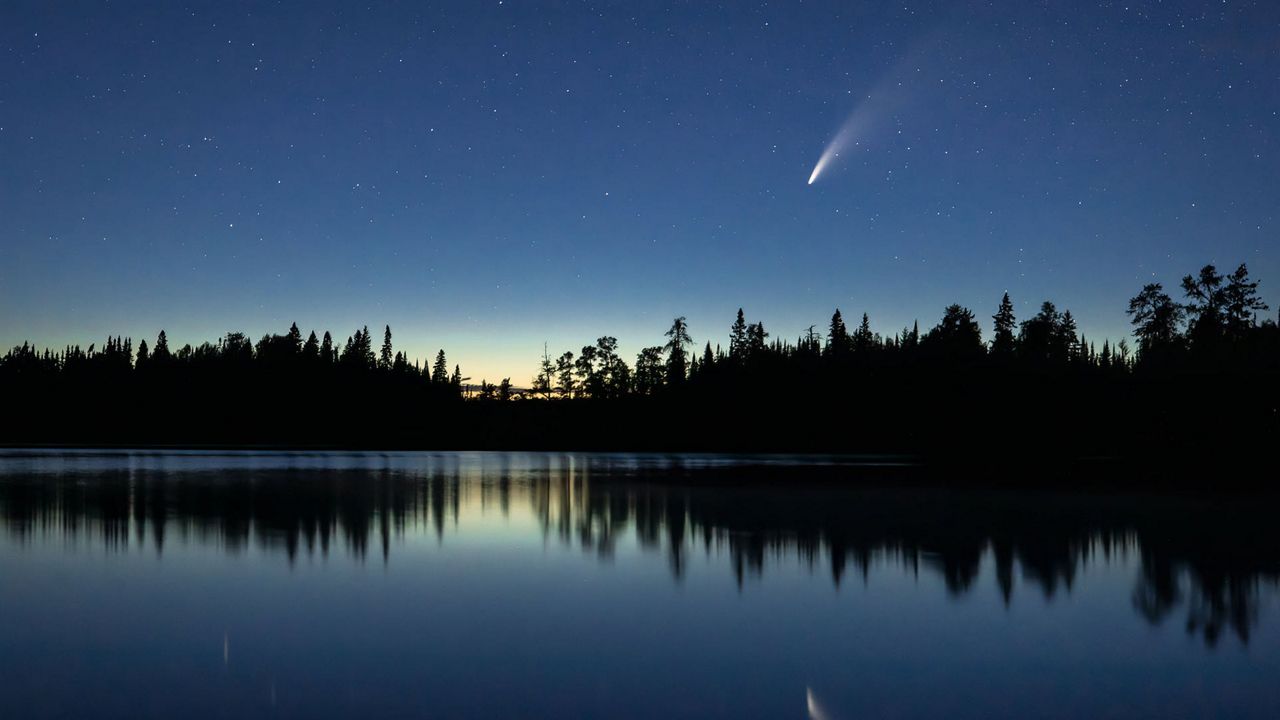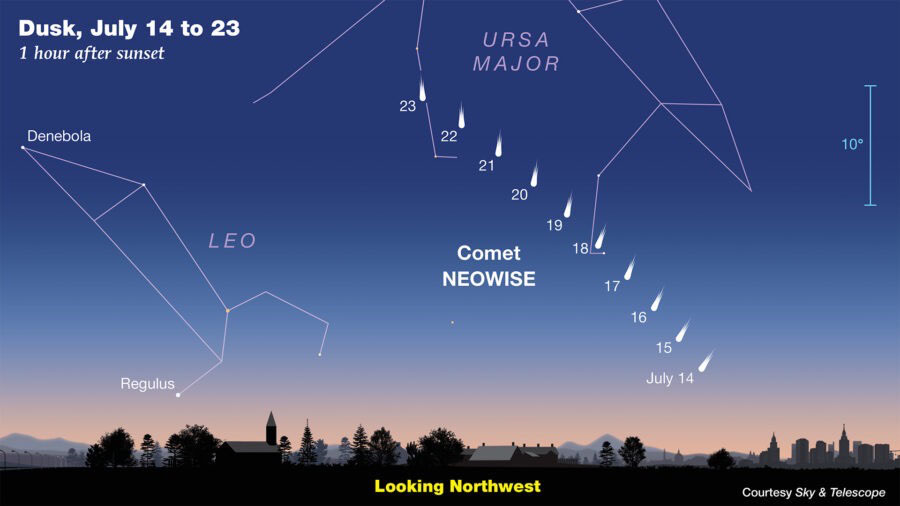ORLANDO, Fla. -- Newly discovered Comet NEOWISE has been making headlines lately with its accessible views from the naked eye and to expert photographer. Perhaps you’ve seen photos like these show up among your social media feeds:
What You Need To Know
- Time is running out to see the Comet NEOWISE
- The next time it will be visible again is in 6,800 years
- Here are specific times to see the Comet based on Orlando
- More Weather Blogs from our weather experts

You still have a few more chances this week before the comet is projected to disappear from view. If you don’t catch it this time, you will have to wait about 6,800 years until it is visible again!

This link shows specific times based on Orlando. It notes that visibility could extend beyond these dates, the comet could dim further, or even break up.
According to NASA Solar System Ambassador Tony Rice, “comets can and do break up and tend to get dimmer as they put more distance between them and the Sun. It's the Sun that is making them visible, not just because of the illumination, but heating the comet to cause the outgassing that creates that fuzzy ball and tail.”
In Central Florida, once evening storms dissipate, any clearing will cooperate with offering a decent view as we head into the evening of Thursday, July 23. This is when the comet will make its closest approach to Earth, though it has dimmed considerably over the past few weeks.
NEOWISE is best seen away from city lights, providing the skies cooperate with clear conditions.
If you missed the opportunities to see NEOWISE, there are some other upcoming sky events that will provide additional reasons to look up at night.
The Southern Delta Aquariid meteor shower will be active from late July through around August 23. The best viewing for this one is typically after midnight and before dawn.
The Perseid Meteor Shower will then peak on August 11. While this is one of the better annual shows, this year it will have to compete with the brightness of a 50% illuminated last quarter moon.
Mark your calendars, and don’t forget to share your photos with us! We invite you to always share your skygazing and weather photos with us on Facebook and Twitter.



